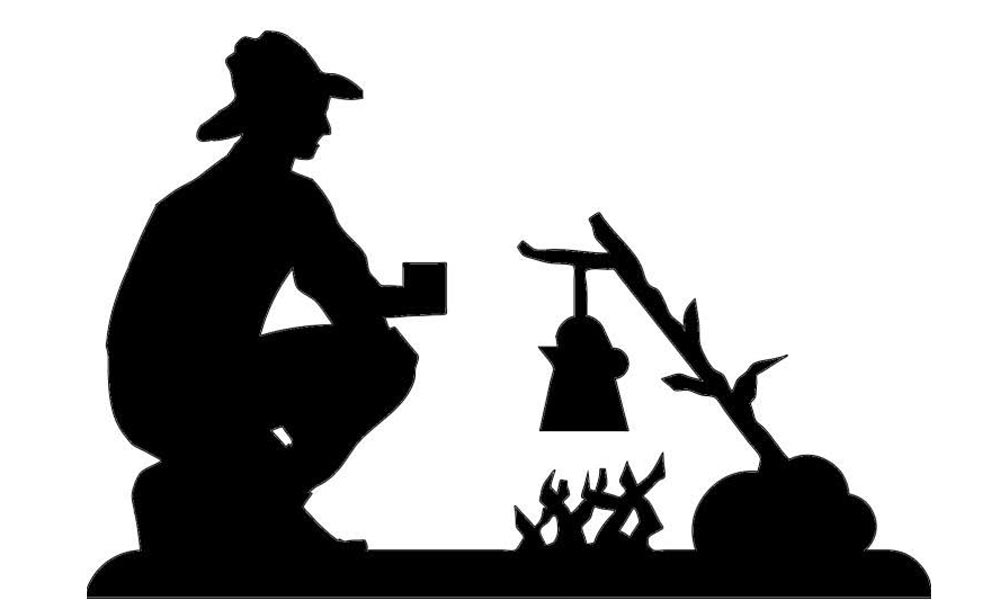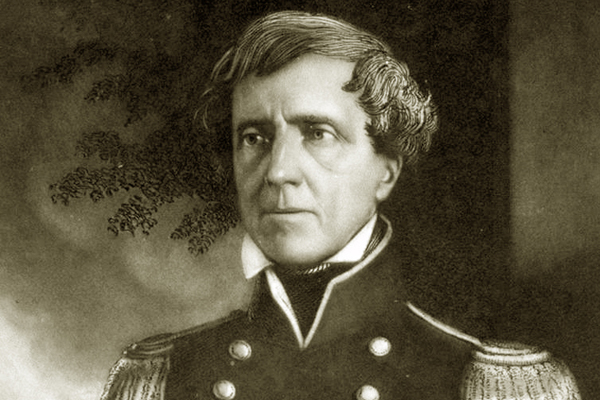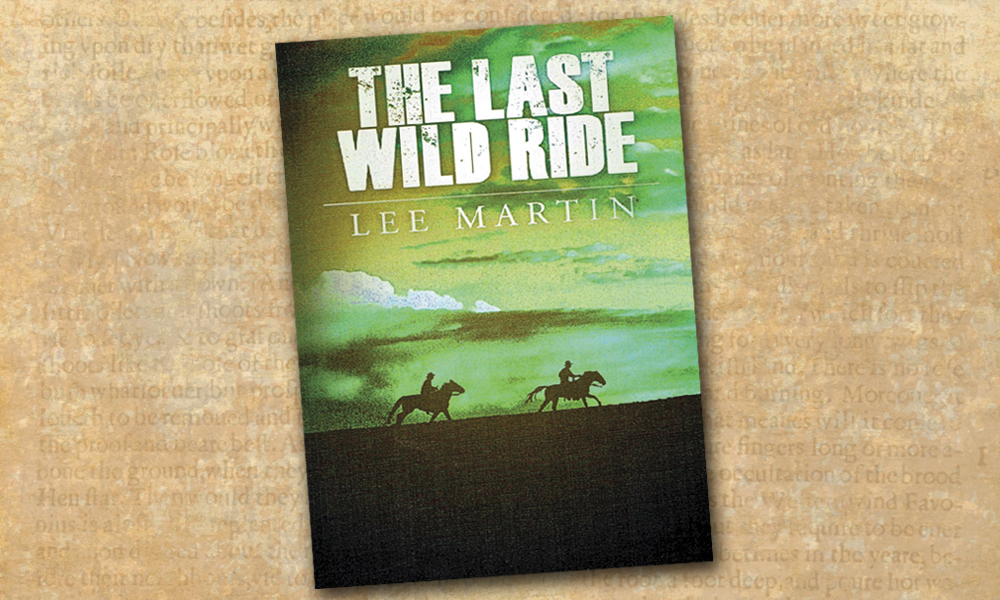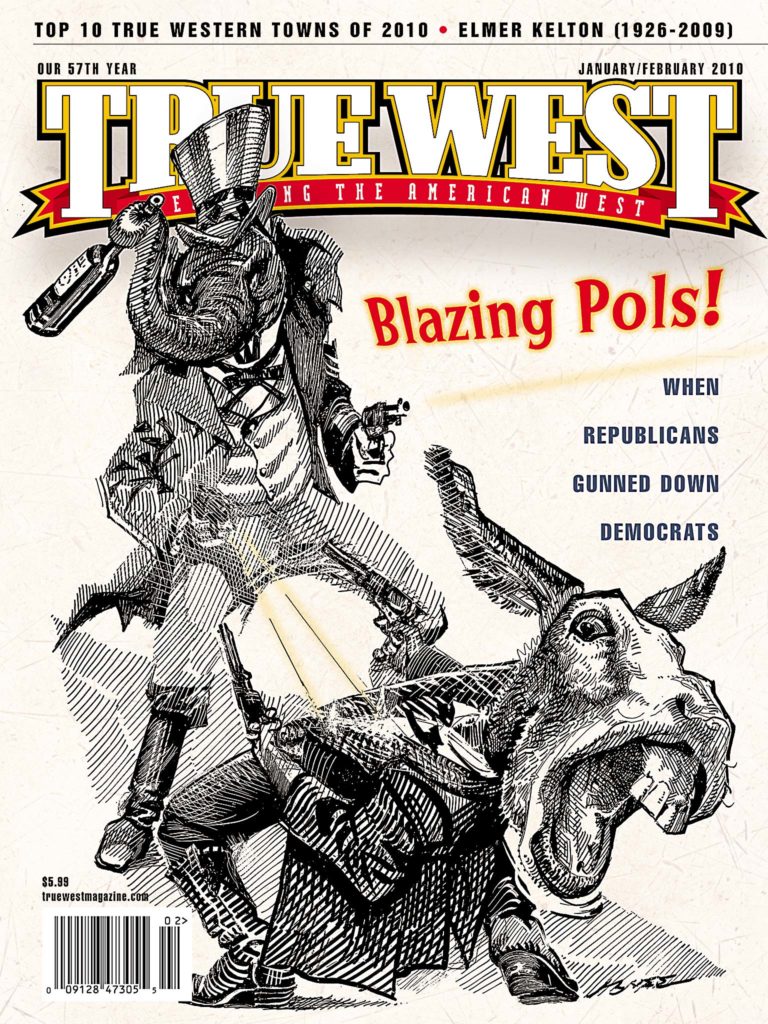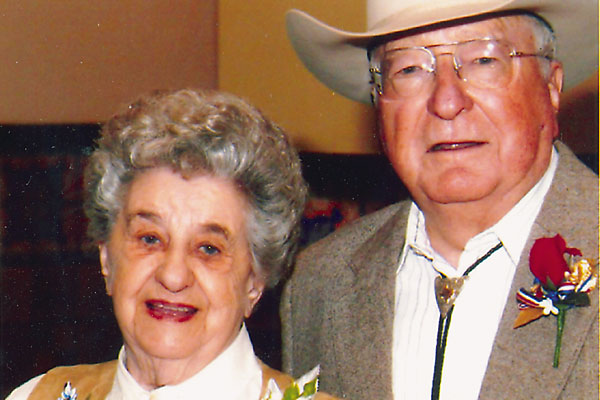
Elmer Kelton leaves behind some big boots to fill.
Well, he would have, had he worn boots.
“I’ve got two glass ankles and flat feet,” he told me when we first met in June 1997, “and they don’t respond to high heels too well.”
Kelton, who won a record seven Spur Awards from Western Writers of America for his novels, four Western Heritage Wrangler Awards (one for an art book on Howard Terpning) from the National Cowboy & Western Heritage Museum and countless other honors, died August 22, 2009, of pre-leukemia in San Angelo, Texas. He was 83.
“Elmer was a gentleman and a real writer of the West—the way it was, the way it is,” author Jane Candia Coleman says. “He’s left a big hole to fill, and I doubt it ever will be filled.”
“Elmer Kelton was a gentleman of the old school and a writer of such singular excellence that he brought honor to both America and the tradition of the American West,” novelist Matt Braun says. “To other writers, he was an icon who stood alone at the very pinnacle of our profession. A century from now his novels will still be read, and the words he put to paper make him immortal. We are all richer in spirit for having known a man who bore his fame with humble modesty.”
Most certainly, he was modest, often self-effacing and West Texas to the core, a man, and writer, who respected his roots.
Born April 29, 1926, at Horse Camp in Andrews County, Kelton grew up on the McElroy Ranch in Upton and Crane Counties where his father Buck landed a job as camp cowboy and soon worked his way up to foreman. Kelton’s grandfather had become a cowboy at age 12, but Elmer, well, “I never had the knack,” he said.
Growing up reading Westerns by writers such as J. Frank Dobie, Zane Grey, Will James and Ross Santee, Kelton knew he wanted to be a writer by the time he was eight or nine. Years later, when he told his father that he wanted to attend the University of Texas and become a newspaper journalist, Buck Kelton “gave me a look that would kill Johnson grass and said, ‘That’s the problem with you kids these days, you want to make a living without working for it.’”
He recalled that anecdote in his memoir, Sandhills Boy: The Winding Trail of a Texas Writer, which Forge published in 2007. Dale Walker, Kelton’s editor since 1993, says Kelton’s original title—nixed after someone told him readers wouldn’t get it—was Short in the Saddle.
“But Short in the Saddle was Elmer to a tee: the most modest of the best of all Western writers and a man with a sly sense of humor,” Walker says. “He was a joy to know and to read. I will miss him forever.”
Those flat feet that kept him out of boots also kept him out of the Navy, but not the Army. Kelton served in the infantry in WWII, and he met his wife Ann in Austria shortly after the war. “I fed a soldier apple strudel,” she says, “and he kept coming back.” They were married in Kelton’s grandmother’s house in Midland, Texas.
After earning his journalism degree from the University of Texas in December 1948, Kelton went to work as an agriculture reporter at the San Angelo Standard-Times. He started submitting short stories to the pulp Western magazines, then moved to longer works. His first novel Hot Iron was published in 1955. His second, Buffalo Wagons, published the next year, won the Spur Award from Western Writers of America.
Yet he couldn’t, and wouldn’t, quit his day job, moving from the Standard-Times to Sheep and Goat Raiser magazine in 1963 and Livestock Weekly in 1968 before retiring in 1990.
“I first met Elmer Kelton at my first WWA convention in Santa Fe in 1982,” Loren D. Estleman recalls. “I was wildly ignorant of the work of contemporaries in the Western field, didn’t know who he was apart from a warm and friendly stranger, and having never been farther west than Kalamazoo I misplaced his accent, which reminded me of actor Ben Johnson’s. ‘Oklahoma?’ I asked. Elmer smiled that ready smile of his and said, ‘Texas. It’s a suburb of Oklahoma.’”
Oh, yeah, he was certainly Texas. Most of his novels were set in the Lone Star State. He wrote about the Texas revolution and its aftermath (Massacre at Goliad; After the Bugles; Bowie’s Mine). He wrote about the Civil War (Bitter Trail; Dark Thicket; Texas Rifles). He wrote about cowboys (Barbed Wire; The Day the Cowboys Quit; The Good Old Boys). He wrote about the 1920s oil boom (Honor at Daybreak), the 1950s drought (The Time It Never Rained) and the modern West (The Man Who Rode Midnight). He wasn’t afraid to tackle racism in the West (Wagontongue; The Wolf and the Buffalo; Manhunters). His recent novels centered on the 19th-century Texas Rangers.
“Elmer Kelton was a major talent, to be greatly missed by the entire field,” best-selling novelist John Jakes says. “I continue to enjoy his historically grounded Texas Ranger novels—in fact I have a collection of three of them in the bookcase just to the left of my computer.”
His fans already miss him.
“Elmer Kelton was a true wordsmith,” Mark Robeson of Glendale, Arizona, wrote on this magazine’s website. “His books were more than mere ‘Westerns,’ they were and always will be pieces of great American Literature. The world has lost one of the greatest writers of all time. His like will never be seen again.”
His fellow novelists admired Kelton and widely read his works. “I read large chunks of Elmer Kelton’s prose simply to learn how he did it,” Richard S. Wheeler says. “He had the most transparent style of any writer I knew. It seemed simple, but it was actually the result of refining his thoughts into clear and lucid sentences. He had a genius for it, but I suspect that genius was the result of a great deal of effort.”
Adds W.C. Jameson: “[Louis] L’Amour, [Owen] Wister, [Will] Henry, [Zane] Grey and all the others had a lot to offer, but the truth is, if we could all write like we wanted to, we’d write like Elmer Kelton.”
His works, however, weren’t read by his wife. Novelist David M. Wilkinson recalls asking Ann Kelton which of her husband’s novels was her favorite. “Almost immediately she replied in her heavy Austrian accent, ‘Oh, I never read those books. I tried once and BOOP, right to sleep.’ Mike [Blakely] and I could not help but burst out laughing. But Elmer just shrugged his shoulders as if it was a minor disappointment he’d long ago learned to stoically endure.”
Yet Kelton’s prose moved readers far beyond the West. The Washington Post ran a lengthy obituary, and one of the first tributes to Kelton appeared on The New Yorker’s website. “He is an American treasure,” Blakely says.
Judy Alter, retired director at Texas Christian University Press, recalls how Kelton always told her “how grateful he was to TCU Press for reprinting his work and keeping it in print.” Yet it should have been the other way around, Alter admits. “In truth he was our best-selling single author. We were and are grateful to him.”
Novelist Win Blevins agrees. “No one captured Texas with the eloquence of Elmer Kelton. He gave us the real West of stockmen with mule-head horses, wild-hair bulls, broken fences, stove-up hands, the day-in, day-out hard work of cowboying, nutty neighbors—all of it, comic, human, heart-touching. In The Good Old Boys and The Time It Never Rained, he caught the West with a vitality and truth the pulp-fiction novels never approached. His books will be read for generations to come.”
Adds Brian Garfield: “The saying about a man you’d be proud to ride with—that saying applied, in capital letters, to Elmer Kelton.”
My favorite Elmer Kelton story came during the 2003 Western History Association in Fort Worth.
Paul Andrew Hutton, then the WHA’s executive director, was introducing Kelton, who was to deliver the keynote speech. Hutton recalled first meeting Kelton at the 1986 WWA Convention, also in Fort Worth. Hutton, who had won his first Spur Award (for Phil Sheridan and His Army), was sitting next to Kelton at the book signing, watching Kelton sign book after book after book.
At the end of the festivities, Kelton asked Hutton to sign a copy of his book. It was the only book Hutton sold that day.
Kelton came up after the introduction, and said: “Thank you, Paul. And I want you to know that one of these days I’m gonna get around to reading that book.”
The crowd erupted in laughter. That was Elmer Kelton, a humble, self-effacing, courteous man—“always a gentleman, always willing to help a new writer,” novelist Rita Cleary says—but a man who could throw out a brilliant zinger too.
“Of the hundreds of writers I have known over the years, Elmer Kelton was one of the very best,” Bill Gulick says. “I’ll miss him.”
Top Ten Must Reads
1. Buffalo Wagons (1956): Buffalo hunters meet trouble in Kelton’s first Spur-winning novel.
2. Massacre at Goliad (1965): Joshua Buckalew’s story about Texas Independence.
3. The Day the Cowboys Quit (1971): Spur-winning depiction of the 1883 Texas Panhandle cowboy strike.
4. Wagontongue (1972): A black cowboy is tested by a bigoted Southerner.
5. The Time It Never Rained (1973): Kelton’s masterpiece of the 1950s drought in West Texas.
6. Manhunters (1974): Suggested by the true story of Gregorio Cortez.
7. The Good Old Boys (1978): Cowboy Hewey Calloway copes with a changing West.
8. The Wolf and the Buffalo (1980): About an ex-slave who joins the 10th Cavalry and a young Comanche warrior.
9. Stand Proud (1984): The story of intolerant rancher Frank Claymore, on trial for murder, told in flashbacks.
10.The Man Who Rode Midnight (1987): Wrangler-winning tale of an aging rancher in the modern West.


